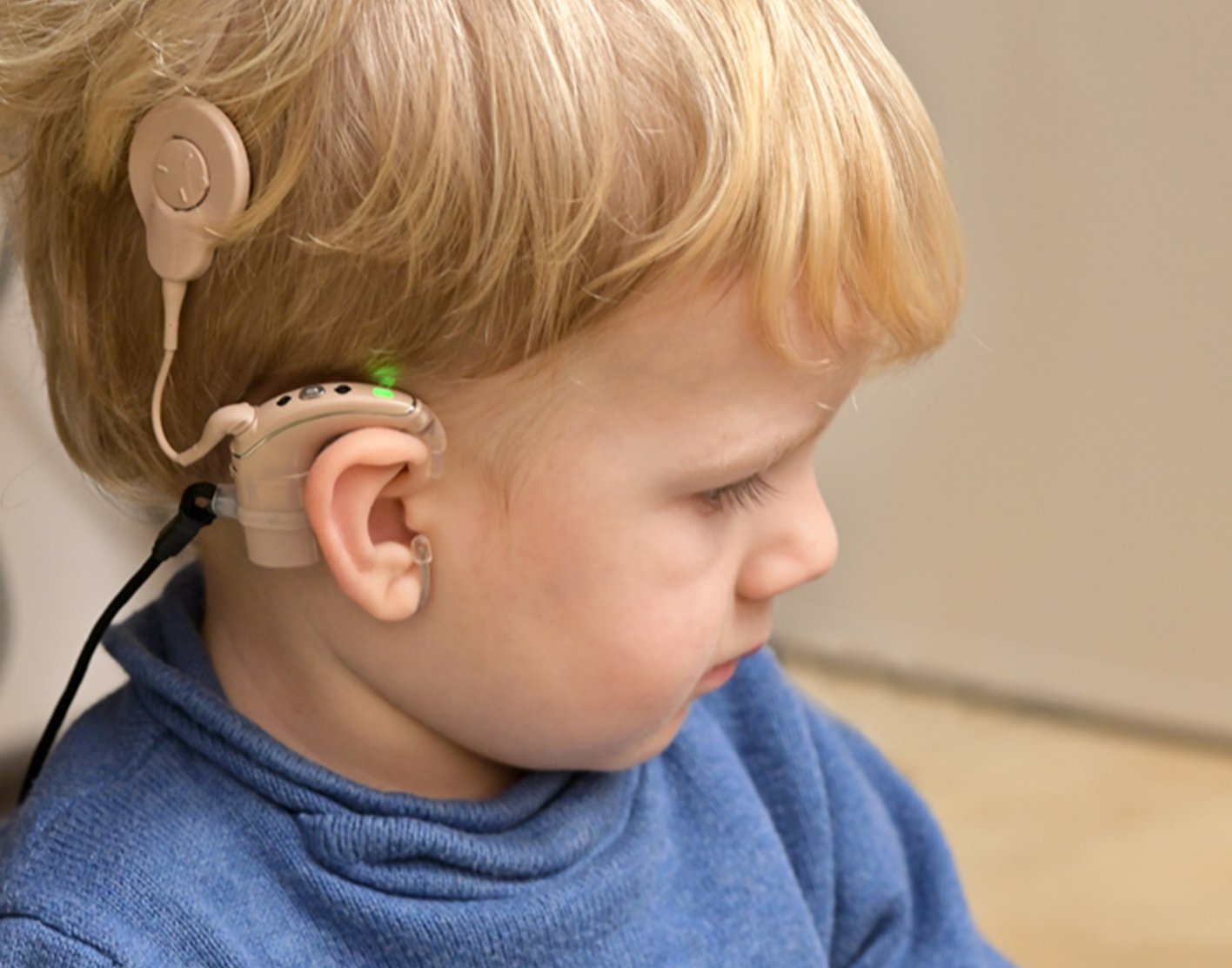
Cortical Auditory Evoked Potential Analyzer
Determining how well a device like a hearing aid or cochlear implant is working for a baby or a cognitively delayed child, can be challenging. Hearlab's breakthrough technology gives at Children's Hospital's audiologists a way to better determine how well a hearing device is working by measuring a baby’s response at the cortical level when a speech sound is presented.
With the advent of newborn hearing screening, we can now identify congenital hearing loss within weeks of a child’s birth. But, determining how well a device like a hearing aid or cochlear implant is working for a baby or a cognitively delayed child, can be challenging. Children’s Hospital Hearing Center is the first center on the West Coast to use the HEARLab® System–Cortical Auditory Evoked Potential Analyzer (CAEP).
The HEARLab System is new technology that can measure and show a patient’s cortical response to sounds. This technology helps determine if the amplification of a hearing device or a cochlear implant is providing optimal benefit to an infant, toddler, or cognitively delayed older child.
“The HEARLab System provides us with another verification tool, to help infants, toddlers, or children hear better. HEARLab lets us measure the child’s detection of speech sounds and perception of sound at varied intensities with and without a hearing device. We can actually see a baby’s response at the cortical level when a speech sound is presented. This is helpful information when determining how well a device is working for each child."
Infants cannot talk to you as you adjust the amplification in a hearing test. Their brains, however, produce cortical responses that give insight into their perception of speech sounds. Using HEARLab technology, pediatric audiologists can determine if the amplification provided by a hearing device is strong enough to elicit an electrical response in the auditory cortex. This response data is used as an indication that child can perceive that sound. With this information, a pediatric audiologist is better able to customize and optimize a hearing device for the child. All this can be accomplished with no actual words or feedback from the patient.
“Each child is unique and this tool helps us fine tune a child’s hearing device and cochlear implant, so we can give each child their best hearing experience. It is important to understand what a child’s perception of normal speech sound is as early as possible because their speech understanding and language development depend on this.”
The HearLab CAEP testing provides clear evidence of when more intervention is necessary such as hearing aid reprogramming or referral for cochlear implant. With HEARLab System we can:
- Conduct a series of tests using speech sounds
- See when the sound is detected by the auditory cortex
- Collect data on the evoked response with a hearing device and without aid
- Analyze the data
- Offer a higher standard of care to pediatric patients who aren’t able to give feedback
If the newborn hearing screening indicates that your baby may have hearing loss, it’s important to work with an audiologist at Children’s Hearing & Speech Center and Children’s Audiology Department to perform more comprehensive hearing tests. Devices such as a hearing aid or cochlear implant may be necessary to optimize your child’s speech and language potential. We are excited to offer the first HEARLab System in California.



























